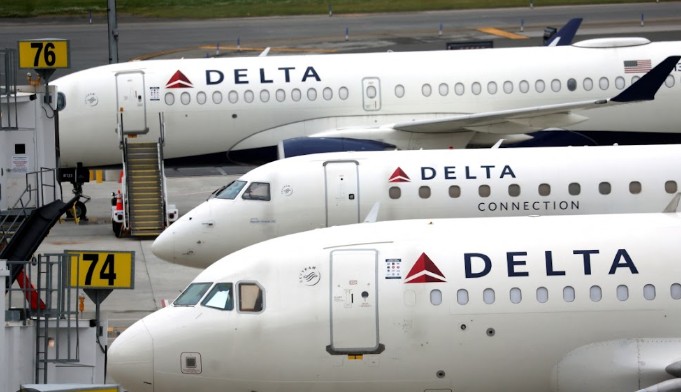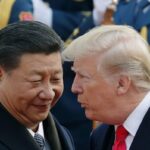April 11, 2025 | Mirabel, Quebec / Atlanta, GA — At Airbus’s assembly plant in Mirabel, Canada, a brand-new A220 jet emblazoned with Delta Air Lines’ logo is ready for delivery. But as it stands, one question remains unresolved: Will the aircraft arrive in the U.S. duty-free or face a hefty 25% tariff?
The answer hinges on increasingly volatile U.S. trade policies that are beginning to disrupt even industries that have, until now, remained largely untouched by tariff battles. The uncertainty surrounding the delivery underscores growing tensions in international trade and highlights how deeply global supply chains are entangled in the politics of tariffs and economic nationalism.
A Jet Built Across Borders
The A220 in question is emblematic of the global nature of modern manufacturing. Though assembled in Canada, the aircraft is built using components from across the world including U.S.-made avionics, German landing gear systems, and Japanese composites. Airbus and Delta had assumed that, as a product of close U.S. allies and given aviation’s traditional exemption from protectionist measures, the jet would be delivered duty-free.
However, recent trade policy shifts have left even aviation manufacturers in a state of limbo. The U.S. government has not clarified whether certain cross-border industrial goods including aircraft will be exempt from the broadening scope of tariffs recently implemented as part of wider disputes with China and other trading partners.
Delta Caught in the Crosswinds
For Delta, which has invested heavily in its A220 fleet as a fuel-efficient option for short-haul and regional routes, the delay or potential tariff could affect both operational planning and cost calculations.
The aircraft is scheduled for delivery in June, but executives now say they are monitoring the situation closely. “The A220 is a cornerstone of our fleet modernization strategy,” a Delta spokesperson said. “We’re in ongoing discussions with both Airbus and U.S. trade authorities to ensure clarity and avoid unnecessary disruptions.”
Delta currently operates one of the largest fleets of A220s in the world, and has dozens more on order. A 25% import duty on each aircraft could significantly raise acquisition costs, potentially forcing delays or renegotiation of delivery terms.
Broader Implications for the Aerospace Sector
While the aviation industry has so far escaped the brunt of tariff wars that have hit sectors like automotive and electronics, that immunity may be eroding. Trade analysts say the inclusion of high-value goods like commercial jets in tariff disputes could ripple through global manufacturing, particularly in an industry that relies on just-in-time delivery and multinational cooperation.
“This isn’t just about one aircraft,” said Helen Rayburn, a trade policy analyst at the Center for International Economics. “This is a warning shot to multinational firms that even complex, strategically important products aren’t guaranteed exemption.”
The aerospace sector is already grappling with post-pandemic recovery challenges, including supply chain slowdowns, labor shortages, and rising material costs. Tariff-related uncertainty adds another layer of complexity.
No Precedent, No Predictability
In 2017, the U.S. Commerce Department famously recommended a near 300% tariff on Bombardier’s CSeries aircraft the predecessor to the A220 after complaints from Boeing. That case was ultimately struck down by the U.S. International Trade Commission in 2018, but it set a precedent for scrutiny of foreign-assembled aircraft entering the American market.
The difference today is the absence of a direct trade complaint. Instead, the uncertainty stems from a broader shift toward aggressive tariff use as a tool of geopolitical leverage.
“As trade becomes more politicized, even compliant and allied trade relationships are coming under pressure,” said Rayburn.
Waiting for a Decision
For now, the A220 remains parked on the tarmac in Mirabel, ready to fly but grounded by politics. Whether it crosses the border as a commercial good or a symbol of a deepening trade standoff may be decided not in the cockpit, but in Washington.



